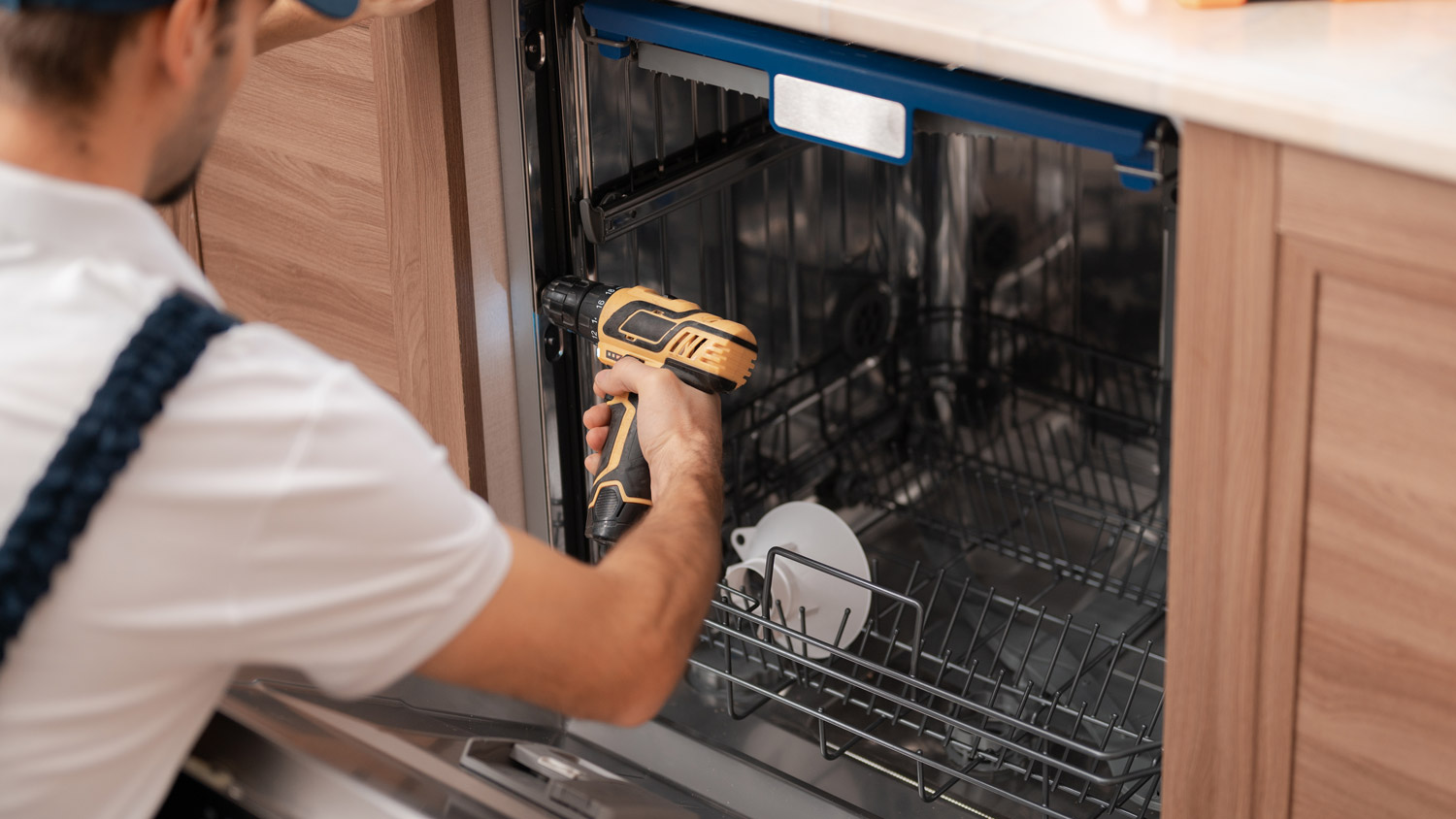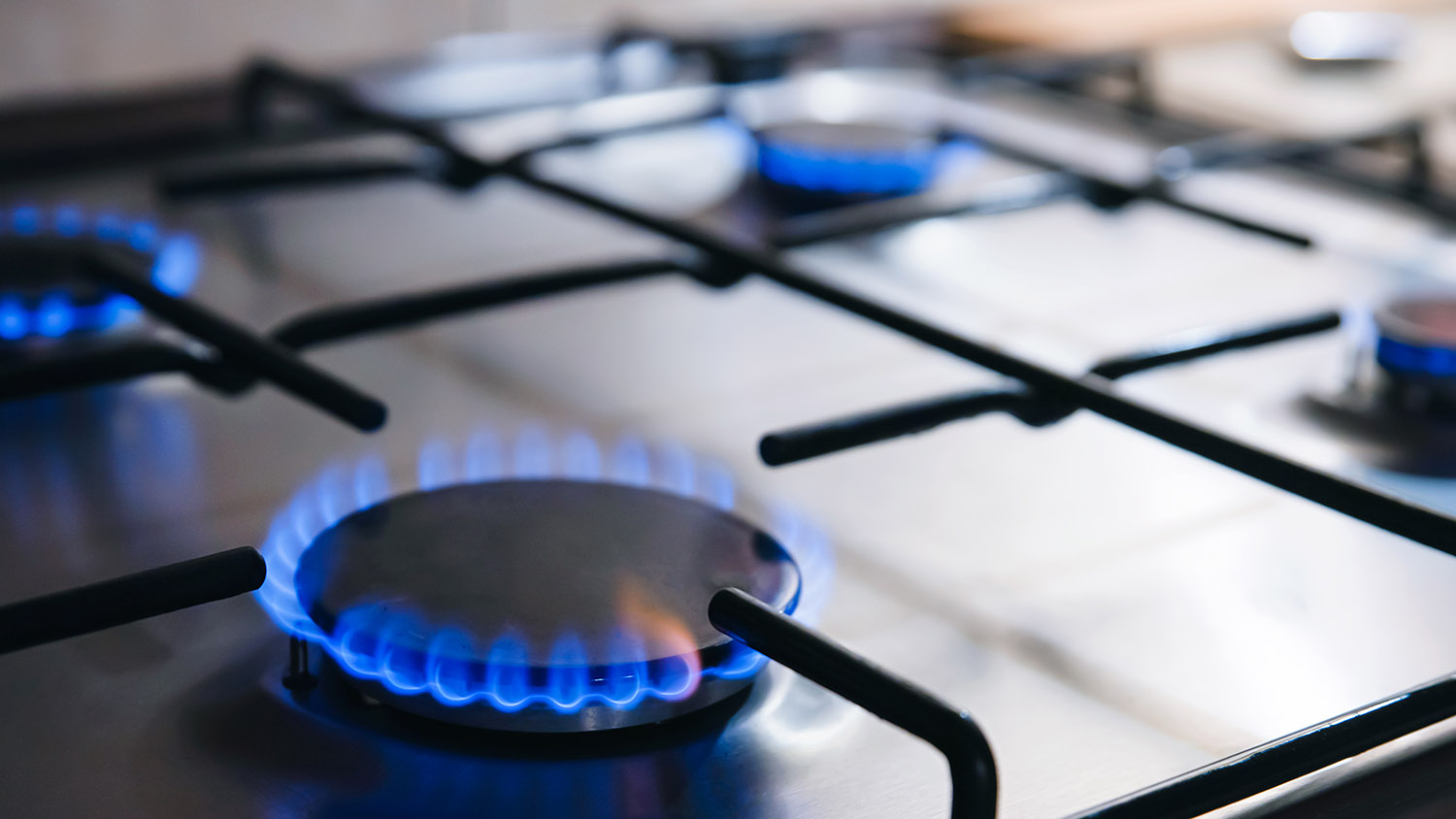
Discover the average dishwasher installation cost, key price factors, and tips to save on your project. Get transparent, expert-backed estimates.
Appliance repair costs depend on your project and location. Check with a local pro for your specific job.
Installing a cooktop involves mounting the appliance, connecting power or gas, and ensuring proper ventilation and code compliance.
The main factors influencing cooktop installation cost are the type of cooktop, installation complexity, and any modifications needed to cabinets or countertops.
Professional installation can help ensure safety and protect your investment, which can add value to your kitchen and home.
Upgrading your cooktop can improve cooking efficiency, energy usage, and kitchen appeal.
For best results, consider the cost of permits, disposal of your old unit, and labor fees to avoid unexpected expenses.
This article was created using automation technology and thoroughly fact-checked and edited by an Angi Editor in accordance with our AI policy.
Cooktop installation cost averages $500, with most homeowners spending between $400 to $800 for a standard installation. Prices can range from as low as $350 for a basic electric cooktop to over $2,500 for high-end gas or induction models with complex modifications. Costs are quoted per unit, not per square foot.
Several factors influence the total cost of a cooktop installation, from the type of cooktop you choose to the prep work involved. Let’s explore these details so you know what to expect before starting your project.
The size of your cooktop—measured by width, depth, and number of burners—directly affects installation cost. Standard sizes, such as 30-inch and 36-inch models, fit existing cutouts and keep labor costs lower. Larger or custom-sized cooktops may require adjustments to your countertop or cabinetry, increasing both material and labor expenses.
If your kitchen requires modifications, like resizing the cutout or reinforcing cabinets for a heavier unit, expect to pay more. Oversized or professional-grade cooktops often need specialized installation, which can further raise costs.
| Cooktop Size (In.) | Description | Cost Range |
|---|---|---|
| 30 | Standard home cooktop | $350–$700 |
| 36 | Larger, more burners | $500–$900 |
| 48 | Oversized, professional use | $800–$1,500 |
| Custom | Non-standard, requires modification | $1,000–$2,500 |
The type of cooktop you select—electric, gas, induction, or downdraft—plays a major role in your installation cost. Each type has unique installation requirements and levels of complexity.
Electric cooktops are often the simplest to install if adequate wiring exists. Gas cooktops require safe connections to gas lines and possible permits. Induction cooktops need specialized wiring and may have higher upfront costs. Downdraft models demand additional venting work, raising both labor and material costs.
Switching from one type to another, such as electric to gas, will increase costs due to new wiring or piping. Weigh the pros and cons of each type before making your final decision.
| Cooktop Type | Description | Cost Range | Pros | Cons |
|---|---|---|---|---|
| Electric | Standard, plug-in | $350–$800 | Simple install, widely available | May require new wiring |
| Gas | Requires gas line | $400–$1,000 | Fast heat, precise control | Needs gas line, permits |
| Induction | Magnetic, energy-efficient | $500–$1,200 | Efficient, safe surface | Needs special wiring |
| Downdraft | Built-in venting | $1,000–$2,500 | No overhead hood needed | Complex install, high cost |
Where you live can impact cooktop installation cost due to differences in labor rates, material costs, and local demand. Urban areas often have higher labor rates and permit fees, while rural locations may face travel charges or limited contractor availability. Some states or metro areas have stricter building codes, which can also affect costs.
The placement of your cooktop—such as in a kitchen island versus a standard countertop—can change installation costs. Island installations often require new venting or rerouting of electrical and gas lines, which adds to labor and materials. Accessibility also matters; multi-story homes or tight kitchen spaces can increase the time and complexity of the job.
Cooktop installation often involves licensed electricians, plumbers, or general contractors. Labor costs vary by specialty, with electricians and plumbers charging between $50 to $150 per hour. Minimum service fees may apply, especially for smaller jobs. Gas and induction cooktops require more specialized labor than electric models.
Labor includes removal of the old cooktop, installation of the new unit, reconnection of utilities, and testing for safety. Market rates differ by region, so check local averages before hiring.
Permits are often required for gas and electrical cooktop installations. Permit fees can range from $50 to $300 depending on your municipality or state. These permits ensure the work is inspected and complies with local building codes, which protects your safety. Inspection costs are sometimes included in permit fees but can be billed separately.
If you opt for features like downdraft ventilation or a new range hood, expect higher installation costs. Upgrades such as smart controls, safety shutoff valves, or custom trim can also add to your budget. Modifications to your countertops, cabinets, or backsplash may be needed to fit your new cooktop, increasing both labor and material costs.
Most new cooktops come with manufacturer warranties covering parts and, sometimes, labor for one to two years. Extended warranties are available for an added cost, which can provide extra peace of mind. Some installers or contractors also offer labor warranties on their work. Warranties can add value by covering unexpected repairs in the first few years.
Routine maintenance is important for safe and efficient operation. Electric and induction cooktops need regular cleaning and occasional part replacement, costing $20 to $100 per year. Gas cooktops may require professional servicing for burner cleaning or gas leak checks, which can cost $75 to $150 per visit. DIY cleaning can reduce costs, but professional maintenance is best for safety-critical repairs.
Some homeowners consider installing a cooktop themselves to save on labor. DIY costs include tools, materials, possible permit fees, and disposal of the old unit. You can save on labor, but you must have the right skills and equipment for safe installation.
DIY installation requires electrical or plumbing knowledge, depending on the cooktop type. Risks include improper hookups, code violations, or even fire and gas hazards. Most electric cooktops are more DIY-friendly than gas or induction units. Time investment ranges from two hours for a simple swap to a full day for complex installations.
We recommend hiring a local licensed pro for gas or induction cooktops, or whenever the job requires new wiring or gas lines.
If your cooktop is acting up, you’ll need to decide between repair and full replacement. Repairs are best for minor issues, like a faulty igniter or a single broken burner, especially if the unit is under warranty or less than five years old. Typical repair costs range from $100 to $400, depending on the problem.
It’s time to replace if the cooktop is over ten years old, out of warranty, or the repair cost exceeds 50% of the price of a new unit. Replacement offers the chance to upgrade to a more efficient or stylish model, which can also improve your kitchen’s value.
Consider energy efficiency and environmental impact when making your decision. Newer cooktops often use less energy and have improved safety features, offering better long-term value.
Installing a new cooktop can add both practical and resale value to your home. While the return on investment for a cooktop alone is modest—around 60%—it’s an essential part of any kitchen remodel. A modern, energy-efficient cooktop appeals to buyers and can make your kitchen more functional and attractive.
ROI is higher if you pair the cooktop installation with other updates, like new countertops or appliances. Features such as universal design, safety upgrades, and code compliance also contribute to your home’s value and daily convenience.
Looking to save on your cooktop installation cost? Try these budget-friendly strategies:
Obtain multiple quotes from cooktop installation pros to compare pricing and services
Choose wall-friendly materials with proven durability for your home's individual needs
Prepare the site area yourself, such as moving items or cleaning, to reduce overall project costs.
Bundle your cooktop installation with other kitchen upgrades to take advantage of package discounts.
Schedule regular maintenance and professional cleaning to avoid costly repairs and extend the life of your cooktop.
Home is the most important place on earth, which is why Angi has helped more than 150 million homeowners transform their houses into homes they adore. To help homeowners with their next project, Angi provides readers with the most accurate cost data and upholds strict editorial standards. We extensively research project costs to develop the pricing data you see, so you can make the best decisions for you and your home. We rely on reputable sources, including the U.S. Bureau of Labor Statistics, academic journals, market studies, and interviews with industry experts—all to ensure our prices reflect real-world projects.
Want to help us improve our cost data? Send us a recent project quote to [email protected]. Quotes and personal information will not be shared publicly.
From average costs to expert advice, get all the answers you need to get your job done.

Discover the average dishwasher installation cost, key price factors, and tips to save on your project. Get transparent, expert-backed estimates.

Get a clear estimate for stove repair costs. Learn what impacts pricing, compare repair vs. replacement, and find tips to save on your next stove repair.

If your dated appliances don't impress, it's time for a refresh. We break down the cost to refinish appliances, including ovens, refrigerators, washers, and more.

Knowing which types of dryer plugs you should use will help keep your home safe from a fire hazard. Here's what you need to know about 3-prong versus 4-prong dryer plugs.

Looking for a new washer or dryer to keep your clothes fresh and clean? Learn how to choose a washer and dryer by knowing what to consider.

Keep standing water and water damage from a clogged laundry drain at bay with this guide. Follow these steps for how to unclog a washer drain.